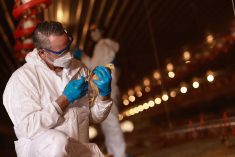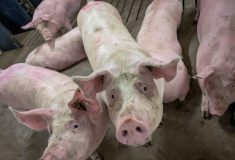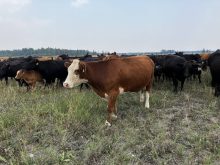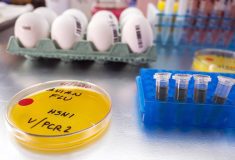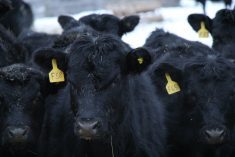Genetic changes in E. coli bacteria may be triggered by the Earth’s changing climate and environment, allowing it to survive longer both inside and outside livestock, a new research review warns.
The review paper, co-authored by University of Guelph microbiologist and environmental sciences professor Jack Trevors with researchers in Portugal and the Netherlands, suggests some forms of E. coli could adapt and pose new public health dangers to water and soil.
The paper appeared last month in The ISME Journal, published by the International Society for Microbial Ecology, the university said in a release last week.
Read Also
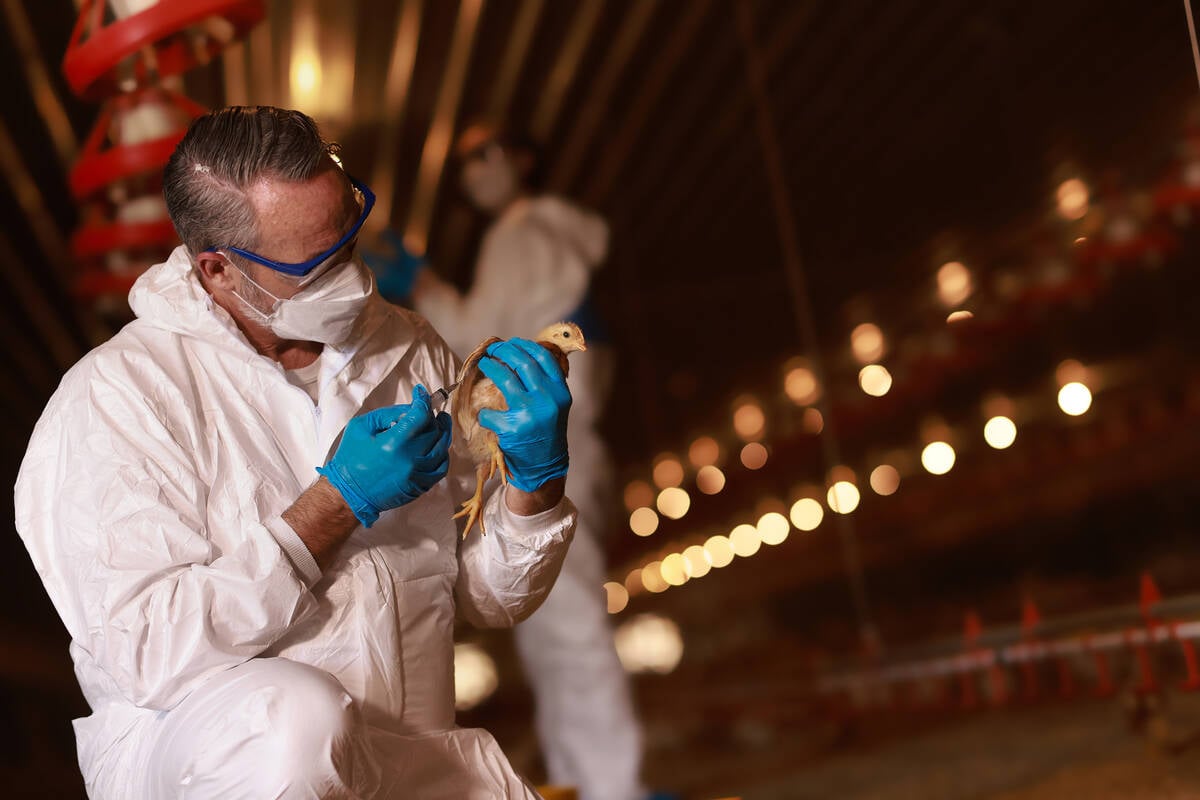
Europe, North America face early wave of bird flu cases
An unusually early outbreak of bird flu cases affecting high numbers of wild birds and poultry farms across Europe and North America is raising concerns of a repeat of previous crises that led to mass culling and food price spikes.
Changing climate and environment will likely trigger genetic changes in bacteria that could enable pathogens to survive in soil and water, potentially contaminating drinking-water sources, the paper suggests.
The scientists reviewed existing research on genomIc changes in E. coli, especially in the O157:H7 strain. That strain has developed tolerance for more acidic environments, they noted.
And that means the bug could more readily survive passage through the guts of animals and humans and enter the drinking-water system and farm fields.
“It’s a public-health alert,” Trevors said in the release. “We have to be alert to possible new public health aspects.”
That means public health agencies, municipalities and operators of public and private water and wastewater systems will want to pay more attention to infrastructure to prevent contamination, he said. “The more we know about this, the better we can protect our water supply.”
To that end, the researchers call for more study of the genetic ability of pathogenic bacteria to survive in open environments.
“We don’t know how organisms are going to respond to warming environments,” Trevors said.
The Guelph study was funded by the Security through Science program of the North Atlantic Treaty Organization (NATO).
The program, which backs collaboration between scientists in NATO countries, was formed in 2006 by the merger of NATO’s Science Committee (SCOM) and its Committee on the Challenges of Modern Society (CCMS).



